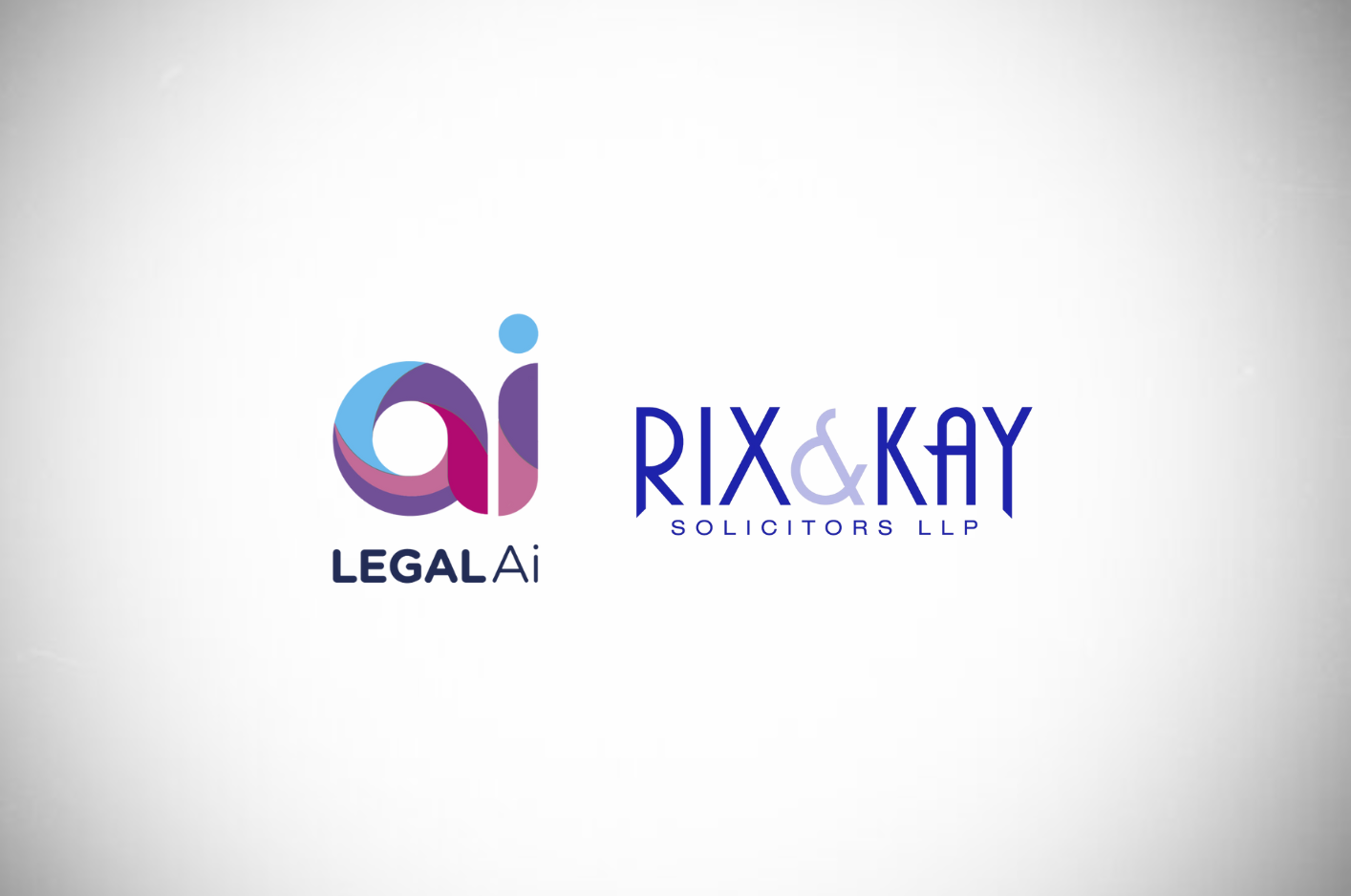Integrating AI technology into legal practices is now crucial for law firms aiming to stay competitive and meet client expectations.
In this guide, we’ll take a look at the advantages AI can bring to your practice and how you start integrating it today.
Advantages of AI tech for law firms
AI tech offers a whole host of benefits for law firms, from increased efficiency and improved decision-making to gaining a competitive edge.
By automating routine tasks and providing data-driven insights, AI allows legal professionals to focus on more complex and valuable work, improving their overall productivity and client satisfaction.
Initial steps to AI adoption
Follow these steps to seamlessly implement AI in your law firm.
Assessing firm needs
The first step in adopting AI technology is to assess your firm’s needs.
You’ll need to identify specific areas where AI can be beneficial. This could include tasks like:
- Reviewing documents
- Emailing clients
- Analysing data
- Scheduling follow-up emails or meetings
Pinpointing the areas that take the most time out of your day will help you understand where AI can make the biggest impact.
Once you’ve settled on a few areas, creating clear goals and objectives for AI implementation is crucial.
Whether your aim is to reduce operational costs, improve efficiency, or enhance client services, having a defined purpose will help to guide your AI adoption strategy.
Choosing the right AI tools
There are numerous AI tools designed specifically for the legal sector, each with its unique features and capabilities. Evaluating these tools carefully is essential. Look for solutions that integrate smoothly with your existing systems and workflows. You might want to consider the following factors:
- Ease of use
- Testing and trial options
- Scalability
- Support
Building a business case
Building a strong business case is essential to gain stakeholder support for AI adoption. You’ll need to demonstrate the ROI by highlighting potential cost savings, efficiency gains, and competitive advantages. You can do this by showcasing the areas of improvement and finding a tool that will help you achieve this. For example, AI can automate repetitive tasks like document review. This not only saves your team countless hours but it can also reduce the risk of human errors.
Showcasing these benefits will help convince decision-makers when it comes to the value of AI.

Overcoming challenges in AI adoption
Here are a few common challenges we see associated with AI adoption, and how you can overcome them.
Technical challenges
Integrating AI with existing systems and workflows can be tricky, but it doesn’t have to be. One of the main technical challenges is ensuring data accuracy and reliability. Poor data quality can significantly hinder AI performance. That’s why it’s important to clean and organise your data beforehand. Collaborate closely with your IT team, or external AI support team, to address any integration issues. They can help ensure that the AI tools work seamlessly with your current systems.
Cultural and employee resistance
Another big hurdle is cultural resistance. Naturally, there may be scepticism amongst staff. However, it’s important to address these concerns head-on and explain that the adoption of AI as a legal firm is beneficial for everyone. Explain that AI promotes a culture of innovation and continuous learning. AI is a tool designed to supplement human capabilities, not replace them. It’s also important that you demonstrate how AI can handle mundane tasks, allowing lawyers to focus on more strategic and satisfying work. Engaging staff early in the process and seeking their input can also reduce resistance.
Training and development
Training and development are also important when it comes to AI adoption. A lack of training is one of the biggest mistakes law firms often make, From day one, provide comprehensive training for staff on how to use AI tools effectively. This should include initial training sessions and ongoing support to help employees adapt. You should also aim to encourage continuous learning and ongoing development. As AI technology evolves, staying up-to-date with the latest advancements will ensure your team can fully leverage AI’s potential.
Successful AI adoption stories
According to a study by Thomson Reuters, many law firms are already using AI technology.
From their survey of over 200 law firms:
- 64% of law firms already using AI-enhanced tech to assist with legal research
- 47% are using AI-led document review that catches errors legal teams might have missed manually
- 45% are using eDisclosure to gather digital evidence for litigation
- 38% are using document automation
But what does this mean? These statistics help to demonstrate AI’s practical benefits in the world of law. Over half of law firms surveyed are already utilising AI daily, without resistance, but the potential for AI extends far beyond this.

Benefits of mastering the learning curve
Increased efficiency and productivity
Of the 64% of law firms that are already using AI (Thomson Reuters), 77% of them reported increased efficiency and time-saving as a key benefit. By automating routine tasks and workflows, AI allows legal professionals to focus on higher-value work. This not only boosts productivity but also allows lawyers to dedicate more time to ‘more important’ strategic activities.
Enhanced decision-making
AI can also improve decision-making for law firms. AI tools can analyse large volumes of data quickly and accurately, uncovering patterns and trends that we might miss. This can be particularly valuable in legal research, case analysis, and strategic planning. By leveraging AI for these tasks, lawyers can make more informed decisions, reduce human errors, and improve case outcomes.
Competitive advantage
Law firms that adopt AI can also remain one step ahead of competitors. Clients increasingly expect quick, accurate, and cost-effective services, and AI can help meet these demands.
Is your law firm AI-ready?
Adopting AI technology is essential for law firms looking to stay competitive, boost productivity, and improve client satisfaction. Getting started might seem challenging at first, but we hope this guide helps your firm build a clear strategy for AI implementation. If you’re ready to get started, we can help your firm integrate AI technology effectively. Our team is dedicated to crafting bespoke, game-changing solutions for the legal industry. Get in touch to learn more.
Legal AI is proud to announce our selection as one of nine pioneering technology companies chosen to participate in SuperTech WM’s groundbreaking Legal Onboarding Innovation Challenge– the UK’s first collaborative, …
Rix & Kay Invest in LegalAI to Transform Their Business
Rix & Kay, a full-service law firm based in West Kent and East Sussex, has become the launch client for Kai and the LegalAI platform. Facing rising operational costs, the …
Will Lawyers be Replaced by AI?
Artificial Intelligence (AI) is changing the way businesses operate. According to Forbes, 35% of global companies are already using AI. Of the businesses that are using it, customer service, …
The Future of Legal Practice: Integrating AI Assistants
AI assistants are playing a pivotal part across many industries, and the legal sector is no exception. According to a study by nu.edu, 77% of companies are either using or exploring …
Legal AI: Should Your Law Firm Invest?
Should your firm invest in Legal AI? The answer, according to industry experts, is a resounding yes – but with a caveat. Instead of relying solely on off-the-shelf, generic …
The Role of AI in Enhancing Client Experience in Legal Services
In the legal world, adopting AI technology is no longer a trend – it’s a must-have. Whether you’re a law firm or an in-house legal team, using AI to …
What are the Benefits of Using AI in Legal Services?
Artificial Intelligence (AI) is transforming the way legal services are delivered. This is known as Legal AI. Law firms are starting to explore how the underlying technology that supports …
Streamlining Legal Workflows with AI: A Practical Guide for Law Firms
Are your lawyers bogged down by manual administrative tasks? They are not alone. Many lawyers struggle with having to use multiple, and often, outdated systems that cut into their fee-earning …
Intro: Legal Ai Founder and CEO Isabel Bathurst in the Spotlight
We would like to introduce you to our founder and CEO Isabel Bathurst, who was recently featured in ex-dragon and business superstar James Khan’s magazine! Isabel has a wealth of …
KAI: The Tailored Platform with Built-in AI for Lawyers
In the dynamic realm of legal technology, Kai is emerging, poised to redefine how legal professionals navigate the complex and intricacies of their work. Legal Ai is not just …













